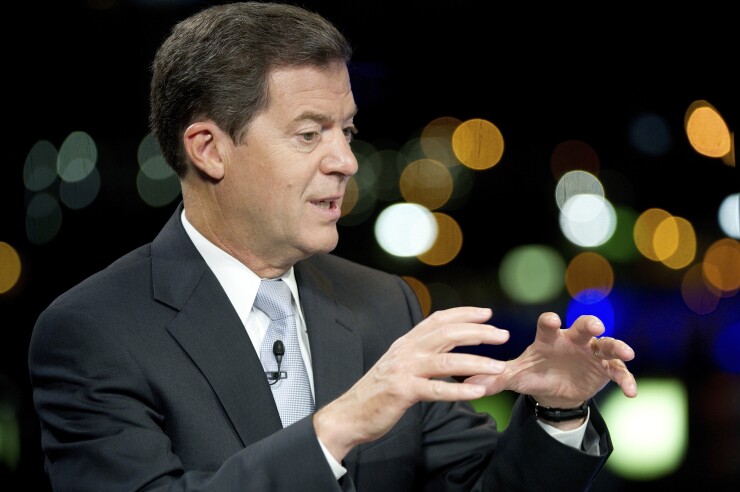DALLAS – In a vote that represents the end of Gov. Sam Brownback’s “experiment” with tax cuts, Kansas lawmakers overrode his veto of a $1.2 billion increase in taxes to cover a $900 million revenue shortfall.
Republicans, many of whom defeated incumbents aligned with Brownback in 2016 primaries, joined with Democrats to restore tax rates that resulted in years of shortfalls following the 2012 income tax cuts. The 2012 cuts virtually eliminated income taxes on some businesses.

Brownback’s veto of Senate Bill 30, announced immediately after its passage early Tuesday morning, was the second veto of a bill increasing taxes in the current session.
Several members of the GOP-dominated legislature who had voted against the tax bill switched sides to vote for the override.
State budget director Shawn Sullivan said in a statement prepared before the votes Monday that failure to resolve the budget impasse would cause problems for state employees within two weeks.
“The FY 2018 for state payroll starts at 12:01 a.m. on June 18,” Sullivan said. “Without action by the legislature, we do not have the necessary authority to pay state workers, causing difficult decisions to be made regarding the continued operations of state government.”
In promoting his 2012 tax cuts, Brownback called the effort a "real live experiment" to see if reducing taxes would stimulate the economy and thereby produce more revenue. With the economy remaining in the doldrums and state revenue falling month after month, Democrats pronounced the experiment a failure and the 2016 primaries sent several Republicans with more moderate tax stances to the legislature.
The House and Senate needed two-thirds majorities to override Brownback’s veto. In the Senate, lawmakers just met the 27-vote threshold.
Calling the bill “the largest tax increase in state history,” Brownback noted that it increases taxes $1.22 billion over two years, compared to $1.04 billion raised in House Bill 2178, which Brownback vetoed earlier.
“Earlier this year, I vetoed a tax increase that threatened to crush the Kansas economy, punishing individual Kansans and their families,” Brownback said. “Additionally, this tax increase is still retroactive and will affect individual families and small businesses in the 2017 tax year. Retroactively applying new taxes in the middle of the year is irresponsible and will harm families and individuals who are working to make ends meet.”
Brownback said the bill cut the low-income exclusion in half, raises the bottom bracket by 14.8%, the middle bracket by 14.1% and the upper bracket by 23.9%.
After meeting or exceeding expectations in the past two months, Kansas revenue numbers fell $2 million below estimates for the month of May, according to the state Department of Revenue.
The shortfall was largely driven by lower-than-expected individual income tax collections, officials said.
Sales tax and corporate income tax collections were both higher than expected. The state says the numbers are better than the first 11 months of last fiscal year.
Moody's Investors Service and S&P Global Ratings both assign





